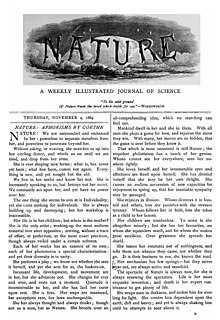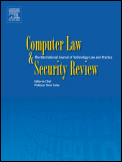
SIGGRAPH is an annual conference on computer graphics (CG) organized by the ACM SIGGRAPH, starting in 1974. The main conference is held in North America; SIGGRAPH Asia, a second conference held annually, has been held since 2008 in countries throughout Asia.

In academic publishing, a scientific journal is a periodical publication intended to further the progress of science, usually by reporting new research.
Information science is an academic field which is primarily concerned with analysis, collection, classification, manipulation, storage, retrieval, movement, dissemination, and protection of information. Practitioners within and outside the field study the application and the usage of knowledge in organizations in addition to the interaction between people, organizations, and any existing information systems with the aim of creating, replacing, improving, or understanding information systems.

Academic publishing is the subfield of publishing which distributes academic research and scholarship. Most academic work is published in academic journal articles, books or theses. The part of academic written output that is not formally published but merely printed up or posted on the Internet is often called "grey literature". Most scientific and scholarly journals, and many academic and scholarly books, though not all, are based on some form of peer review or editorial refereeing to qualify texts for publication. Peer review quality and selectivity standards vary greatly from journal to journal, publisher to publisher, and field to field.
Internet privacy involves the right or mandate of personal privacy concerning the storing, repurposing, provision to third parties, and displaying of information pertaining to oneself via Internet. Internet privacy is a subset of data privacy. Privacy concerns have been articulated from the beginnings of large-scale computer sharing.
Media ethics is the subdivision dealing with the specific ethical principles and standards of media, including broadcast media, film, theatre, the arts, print media and the internet. The field covers many varied and highly controversial topics, ranging from war journalism to Benetton ad campaigns.
eMedicine is an online clinical medical knowledge base founded in 1996 by Scott Plantz MD FAAEM, and Jonathan Adler MD MS FACEP FAAEM, a computer engineer Jeffrey Berezin MS. The fundamental concept was to create a large repository of professional level medical content that could be both updated and accessed continuously to assist in clinical care and physician education. The eMedicine website consists of approximately 6,800 medical topic review articles, each of which is associated with one of 62 clinical subspecialty "textbooks". Pediatrics, for example, has 1,050 articles organized into 14 subspecialty "textbooks" ; the emergency medicine volume has 630 articles and internal medicine has nearly 1,400 articles. If the remainder of the specialty textbooks are added to the total 6800+ articles were created in eMedicine. In addition, the knowledge base includes over 25,000 clinically multimedia files. To create this online content over 11,000 board certified healthcare specialists were recruited and managed in a first generation, proprietary learning management system (LMS). If printed out in hardcopy form, the system's content would total over 1 million pages.
Sylvia Mercado Kierkegaard was a Philippine jurist who specialized in computer law.

The Web Conference is a yearly international academic conference on the topic of the future direction of the World Wide Web. The first conference of many was held and organized by Robert Cailliau in 1994 at CERN in Geneva, Switzerland. The conference has been organized by the International World Wide Web Conference Committee (IW3C2), also founded by Robert Cailliau and colleague Joseph Hardin, every year since. The conference's location rotates among North America, Europe, and Asia and its events usually span a period of five days. The conference aims to provide a forum in which "key influencers, decision makers, technologists, businesses and standards bodies" can both present their ongoing work, research, and opinions as well as receive feedback from some of the most knowledgeable people in the field.
The ACM Conference on Human Factors in Computing Systems (CHI) series of academic conferences is generally considered the most prestigious in the field of human–computer interaction and is one of the top-ranked conferences in computer science. It is hosted by ACM SIGCHI, the Special Interest Group on computer–human interaction. CHI has been held annually since 1982 and attracts thousands of international attendees. CHI 2020, which was originally planned to take place on April, was cancelled due to COVID-19, and CHI 2021 was held online as a virtual conference chaired by Yoshifumi Kitamura and Aaron Quigley. CHI 2021 “making waves, combining strengths” was originally scheduled to take place in Yokohama.
A law review is a scholarly journal or publication that focuses on a wide array of legal issues. A law review is a type of legal periodical. Typically, the law students initiate the production of the journals, with the publication of articles that are authored by law faculty and law scholars. The law students add references, notes and comments in the topics contained in the reviews.
Information technology law concerns the law of information technology, including computing and the internet. It is related to legal informatics, and governs the digital dissemination of both (digitized) information and software, information security and electronic commerce aspects and it has been described as "paper laws" for a "paperless environment". It raises specific issues of intellectual property in computing and online, contract law, privacy, freedom of expression, and jurisdiction.
The Center for Infectious Disease Research and Policy (CIDRAP) is a center within the University of Minnesota that focuses on addressing public health preparedness and emerging infectious disease response. It was founded in 2001 by Dr. Michael Osterholm, in order to "prevent illness and death from infectious diseases through epidemiological research and rapid translation of scientific information into real-world practical applications and solutions".
The Centre for Studies on Federalism (CSF) was established in November 2000 with the primary purpose of studying and researching the theory and practice of Federalism both as a political doctrine and in its implementation in the institutional systems of the Modern state. CSF's main focus is on the infra-national, macro-regional and global scale of federalism: it specifically considers regional integration at a time of globalisation, with special reference to Europe, its history and civilization, its progress towards unification and its future.
The Fletcher School of Law and Diplomacy is the graduate school of international affairs of Tufts University, in Medford, Massachusetts. The School is one of America's oldest graduate schools of international relations and is well-ranked in its masters and doctoral programs. As of 2017, the student body numbered around 230, of whom 36 percent were international students from 70 countries, and around a quarter were U.S. minorities. The school's alumni network numbers over 9,500 in 160 countries, and includes ambassadors, diplomats, foreign ministers, high-ranking military officers, heads of nonprofit organizations, and corporate executives.

Information technology (IT) is the use of computers to create, process, store, retrieve, and exchange all kinds of electronic data and information. IT is typically used within the context of business operations as opposed to personal or entertainment technologies. IT is considered to be a subset of information and communications technology (ICT). An information technology system is generally an information system, a communications system, or, more specifically speaking, a computer system — including all hardware, software, and peripheral equipment — operated by a limited group of IT users.
The GESIS – Leibniz Institute for the Social Sciences is the largest German infrastructure institute for the social sciences. It is headquartered in Mannheim, with a location in Cologne. With basic research-based services and consulting covering all levels of the scientific process, GESIS supports researchers in the social sciences. As of 2017, the president of GESIS is Christof Wolf.
The Cambridge Journal of International and Comparative Law is an open access double blind peer-reviewed journal, published under a Creative Commons Attribution 3.0 License.
Semantic Scholar is an artificial-intelligence backed search engine for academic publications developed at the Allen Institute for AI and publicly released in November 2015. It uses advances in natural language processing to provide summaries for scholarly papers. The Semantic Scholar team is actively researching the use of artificial-intelligence in natural language processing, machine learning, Human-Computer interaction, and information retrieval.





